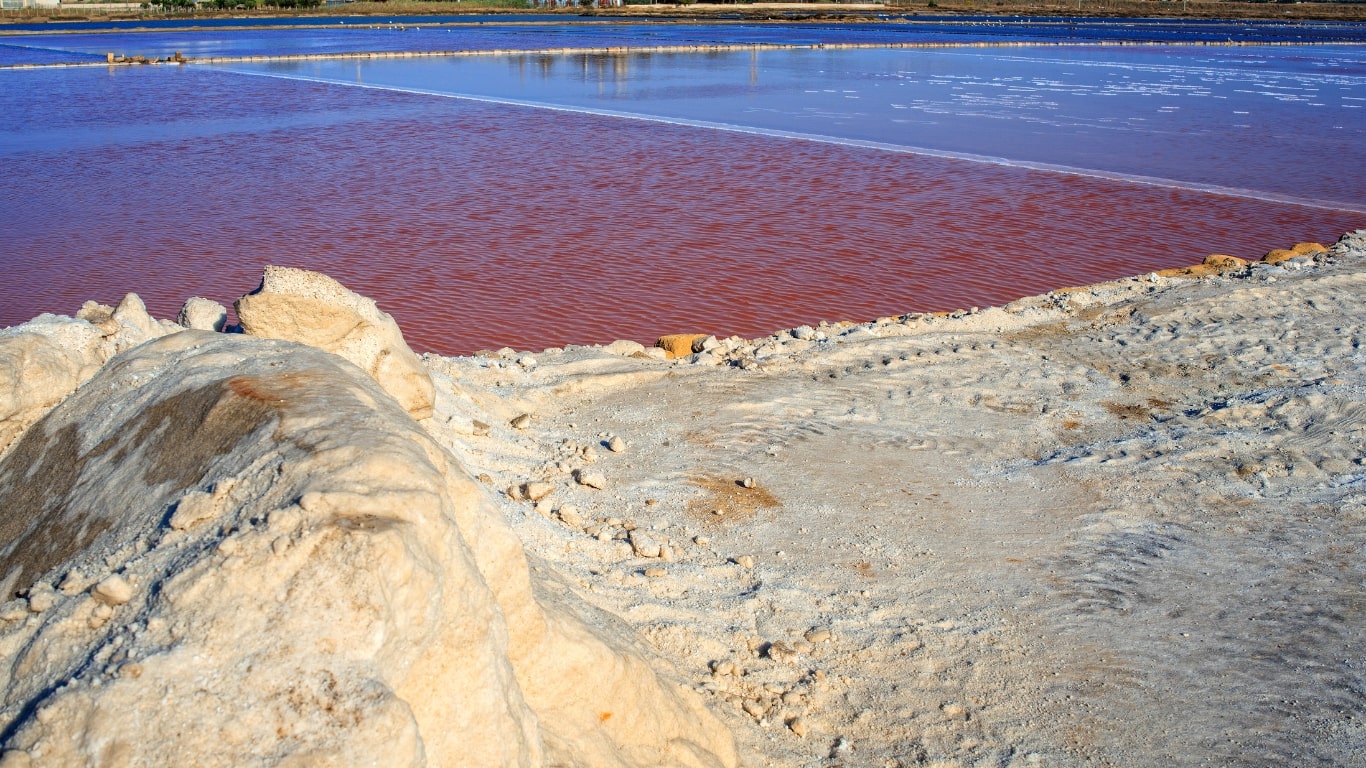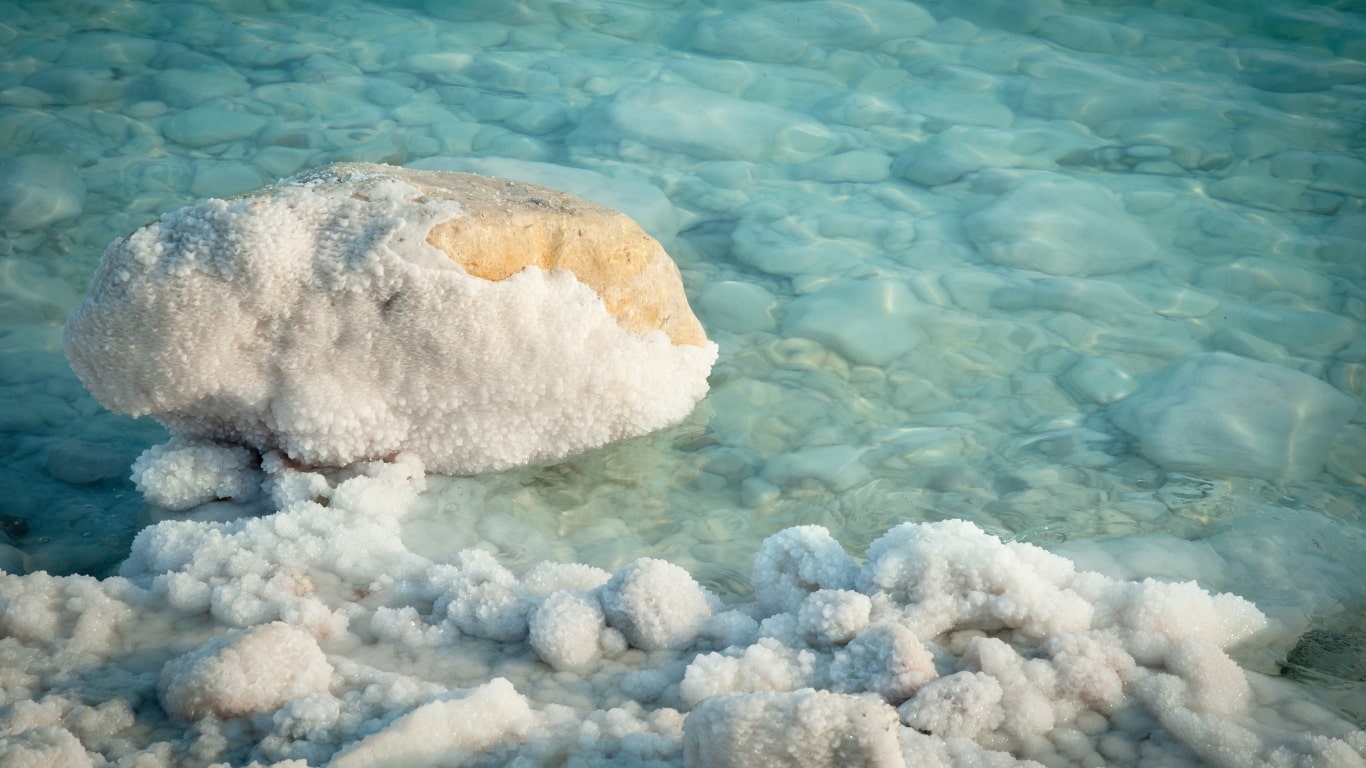
An In-Depth Look at Mediterranean Sea Salt
Salt is one of the most essential ingredients in culinary history, with a rich tradition that spans thousands of years. From preserving food to enhancing flavors, salt is a crucial component of human civilization. Among the many varieties of salt available today, Mediterranean sea salt stands out not only for its distinctive flavor and mineral composition but also for the cultural and environmental heritage tied to its production. In this article, we will explore the origins, production process, types, health benefits, and culinary uses of Mediterranean sea salt in detail.
Origins of Mediterranean Sea Salt
The Mediterranean region has been a significant hub of salt production since ancient times. The countries bordering the Mediterranean Sea, including Spain, Italy, France, Greece, and Turkey, have been harvesting sea salt for centuries. These regions benefit from a unique combination of sun, wind, and shallow seawater basins, creating ideal conditions for salt formation.
The tradition of salt harvesting in the Mediterranean dates back to ancient civilizations such as the Egyptians, Romans, and Phoenicians, who understood the value of salt for preserving food, particularly fish and meats. These early societies also recognized the medicinal properties of salt, using it in various remedies and rituals. Over time, Mediterranean sea salt became a prized commodity in trade and an integral part of the regional economy.
How Mediterranean Sea Salt Is Made

The production of Mediterranean sea salt is a natural and sustainable process, closely tied to the environmental conditions of the region. Unlike table salt, which is typically mined from underground salt deposits and heavily refined, sea salt is harvested directly from the evaporation of seawater. The process typically involves the following steps:
- Collection of Seawater: Seawater from the Mediterranean is channeled into shallow salt ponds or salt pans, often located along coastal regions. These salt pans are constructed in areas where the sun is strong and evaporation is rapid.
- Evaporation Process: The sun and wind play a crucial role in evaporating the seawater, leaving behind concentrated brine. Over time, the water content decreases, and salt crystals begin to form. This process can take several weeks, depending on the climate and weather conditions.
- Harvesting: Once the salt crystals have formed, they are harvested by hand using traditional wooden tools, a method that has been passed down through generations. Harvesters carefully rake the salt to collect the crystals while leaving behind any impurities.
- Drying and Sorting: After harvesting, the salt is dried in the sun to remove any remaining moisture. It is then sorted according to grain size and purity, with some salt being ground into finer particles while other batches are left as large, coarse crystals.
The unrefined nature of Mediterranean sea salt means it retains many trace minerals that contribute to its unique flavor and nutritional profile. These minerals include magnesium, calcium, potassium, and iodine, which are not present in refined table salt.
Types of Mediterranean Sea Salt
Mediterranean sea salt comes in various forms and textures, each with its unique characteristics suited to different culinary and therapeutic uses. Some common varieties include:
- Coarse Mediterranean Sea Salt: This salt is harvested in large crystals and is often used for seasoning meat, fish, and vegetables. The large grains provide a satisfying crunch and release their flavor slowly during cooking.
- Fine Mediterranean Sea Salt: After harvesting, this salt is ground into smaller, more delicate particles. It dissolves quickly and is ideal for baking, seasoning salads, or finishing dishes with a subtle burst of flavor.
- Flake Salt: Flake salt, often referred to as “fleur de sel” in France, is a delicate, flaky variety of Mediterranean sea salt that forms on the surface of the salt pans during the evaporation process. It is hand-harvested and is prized for its light, crisp texture and mild flavor. Flake salt is commonly used as a finishing salt, sprinkled on dishes just before serving to enhance flavor and presentation.
- Smoked Mediterranean Sea Salt: In some regions, Mediterranean sea salt is smoked over wood chips to infuse it with a smoky flavor. This variety is popular in gourmet cooking and can be used to add a depth of flavor to grilled meats, roasted vegetables, and soups.
Nutritional and Health Benefits of Mediterranean sea salt
One of the key differences between Mediterranean sea salt and regular table salt is its unrefined nature. While table salt is often processed to remove impurities and add iodine, Mediterranean sea salt is left in its natural state, preserving the trace minerals found in seawater. These minerals contribute to the salt’s nutritional value and potential health benefits.
- Rich in Essential Minerals: Mediterranean sea salt contains trace amounts of magnesium, potassium, calcium, and other minerals. Magnesium is important for muscle and nerve function, potassium helps regulate blood pressure, and calcium is essential for bone health. Although the quantities of these minerals in sea salt are relatively small, they still provide a nutritional advantage over refined table salt, which lacks these elements.
- Lower Sodium Content: Compared to refined table salt, Mediterranean sea salt generally has a slightly lower sodium content due to the presence of other minerals. While it is still important to moderate salt intake to maintain heart health, using sea salt may help reduce overall sodium consumption without sacrificing flavor.
- Alkalizing Properties: Some proponents of Mediterranean sea salt suggest that its natural mineral composition helps balance the body’s pH levels, promoting an alkaline state. An alkaline diet is believed to reduce inflammation, improve digestion, and support overall well-being. While more research is needed to confirm these claims, many people who use Mediterranean sea salt appreciate its potential health benefits.
- Electrolyte Balance: The minerals in Mediterranean sea salt can help maintain electrolyte balance in the body, which is particularly important for athletes and individuals who engage in regular physical activity. Electrolytes, such as sodium, potassium, and magnesium, are essential for proper hydration and muscle function.
Culinary Uses of Mediterranean Sea Salt
Mediterranean sea salt is prized by chefs and home cooks alike for its clean, natural flavor and versatility in the kitchen. Whether used in cooking, baking, or as a finishing touch, this salt enhances the flavor of dishes in a way that refined table salt cannot.
- Seasoning: Mediterranean sea salt can be used to season meats, fish, vegetables, and grains during cooking. Coarse varieties are particularly good for roasting or grilling, as they create a savory crust that locks in moisture and flavor.
- Baking: Fine Mediterranean sea salt is ideal for baking, as it dissolves quickly and evenly in doughs and batters. It adds a subtle savory note to sweet baked goods like cookies and cakes, balancing out the sweetness.
- Finishing: Flake salt or smoked salt can be sprinkled on finished dishes to enhance texture and flavor. Try using it on salads, grilled meats, roasted vegetables, or even desserts like chocolate brownies or caramel ice cream for a delicious contrast.
- Preserving: Mediterranean sea salt has been used for centuries to preserve foods like olives, anchovies, and cured meats. The natural minerals in the salt help to extend the shelf life of these foods while enhancing their flavor.
Environmental and Cultural Importance of Mediterranean sea salt

In addition to its culinary and health benefits, Mediterranean sea salt holds significant cultural and environmental importance. Many salt pans in the Mediterranean are located in protected areas, where traditional salt production supports local ecosystems and biodiversity. These salt pans provide habitats for various species of birds and marine life, and the sustainable harvesting practices employed by salt farmers help preserve these delicate environments.
Furthermore, the artisanal methods used in Mediterranean sea salt production contribute to the preservation of cultural heritage. The knowledge and skills required to harvest salt by hand have been passed down through generations, and in many regions, salt farming is a way of life that supports local communities.
What is so special about Mediterranean sea salt?
Mediterranean sea salt is special because it is harvested through traditional methods, relying on the natural evaporation of seawater under the Mediterranean sun. This process leaves the salt unrefined, allowing it to retain essential trace minerals like magnesium, calcium, and potassium, which enhance both flavor and nutrition. Its distinct taste, crunchy texture, and the heritage tied to its production make it a preferred choice in gourmet cooking and for those seeking a more natural, less processed salt option.
Is Mediterranean sea salt better than Himalayan salt?
Mediterranean sea salt and Himalayan salt each have their unique qualities, so which is “better” depends on individual preferences and needs. Mediterranean sea salt has a clean, crisp flavor and is typically richer in magnesium, while Himalayan salt is known for its pink color and high mineral content, including iron. Both are less processed than table salt and contain trace minerals, but people who prefer a milder taste might favor Mediterranean sea salt, while those who seek a more mineral-rich salt often opt for Himalayan salt.
What is the healthiest sea salt to use?
The healthiest sea salt to use is one that is minimally processed and retains its natural minerals, such as Mediterranean sea salt, Celtic sea salt, or Himalayan salt. These salts contain trace minerals like magnesium, potassium, and calcium, which are stripped away in refined table salt. However, it is important to remember that moderation is key when it comes to salt consumption, regardless of the type, to maintain a balanced sodium intake.
Is Mediterranean sea salt iodized?
Mediterranean sea salt is generally not iodized unless it is specifically labeled as such. Most unrefined sea salts, including those from the Mediterranean, do not undergo the process of adding iodine, which is commonly done to table salt to prevent iodine deficiency. If iodine intake is a concern, especially for thyroid health, it may be necessary to supplement with other iodine-rich foods like seafood or to choose iodized salt.
Is Mediterranean sea salt good for cooking?
Yes, Mediterranean sea salt is excellent for cooking and is prized for its natural flavor and versatility in the kitchen. It can be used in a variety of dishes, from seasoning meats and vegetables to baking. Its coarse varieties add a satisfying crunch, while finer versions dissolve quickly, making it suitable for both cooking and as a finishing salt. Mediterranean sea salt enhances the flavor of dishes without overwhelming them, making it a favorite among chefs.
Which salt is good for high blood pressure?
For individuals with high blood pressure, it is important to limit sodium intake, regardless of the type of salt used. That said, salts like potassium-enriched salt substitutes, which replace some of the sodium with potassium, are often recommended. Mediterranean sea salt and other unrefined salts contain trace minerals, but they should still be used sparingly to manage blood pressure. A diet low in sodium combined with potassium-rich foods, rather than the type of salt, plays a more significant role in controlling high blood pressure.
Buying Mediterranean sea salt in Singapore
For those looking to enhance their culinary experience with the natural richness of Mediterranean sea salt, our shop in Singapore offers the finest selection available. Sourced directly from the sun-drenched shores of the Mediterranean, our sea salt is unrefined, preserving the trace minerals that give it its unique flavor and nutritional benefits. Whether you’re a gourmet chef or a home cook, adding Mediterranean sea salt to your pantry is a simple way to elevate your dishes. Shop with us to enjoy fast delivery and premium quality—buy Mediterranean sea salt in Singapore today for an authentic taste of the Mediterranean in your kitchen!
Conclusion
Mediterranean sea salt is more than just a seasoning—it’s a product deeply rooted in history, culture, and the environment. Its unique flavor and mineral-rich composition make it a healthier and more flavorful alternative to refined table salt. Whether you’re cooking a gourmet meal or simply adding a pinch to your favorite dish, Mediterranean sea salt offers a taste of the sun, sea, and centuries of tradition.
